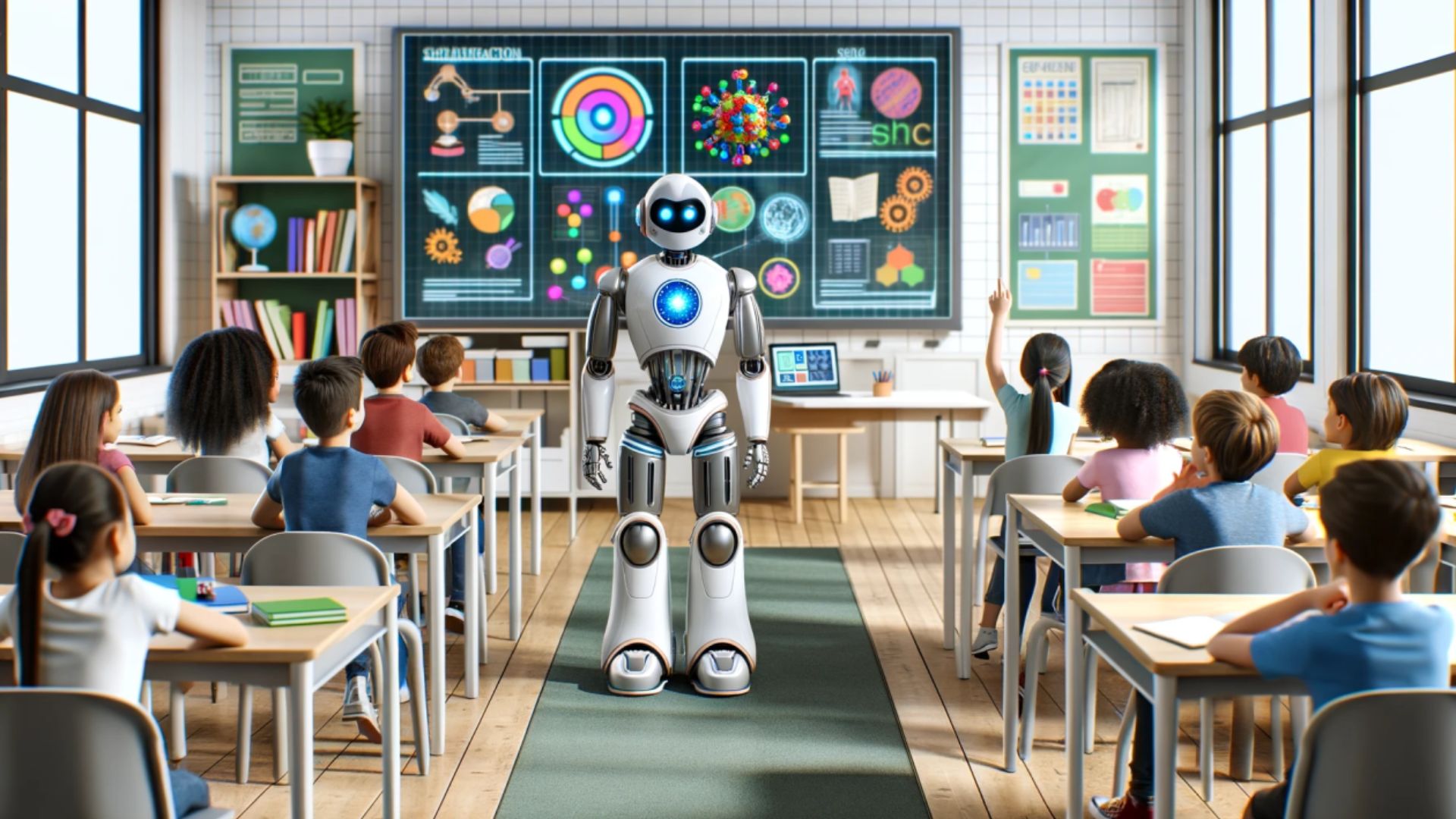For decades, the traditional classroom model has remained largely stagnant – a teacher delivering one-size-fits-all lessons from the front while students are expected to passively absorb the information. However, a powerful force is disrupting these long-established conventions and catalyzing a paradigm shift in how K-12 education is facilitated: artificial intelligence (AI).
AI technologies are already transforming industries like healthcare, transportation, and finance. Now, this cutting-edge innovation is making its way into K-12 classrooms, augmenting and optimizing how students learn and how teachers instruct. The Brookings Institute suggests that through careful integration of AI, K-12 schools have the opportunity to develop learning environments that are not only more efficient but also more equitable and engaging for all students.
Let’s explore the major AI trends poised to revolutionize education.
AI Tutors Providing Individualized Instruction
Rather than relying solely on one instructor teaching the entire class in unison, AI tutoring systems leverage machine learning to provide personalized instruction tailored to each student’s unique strengths, weaknesses, and optimal learning styles. These AI tutors dynamically analyze where a student is succeeding or struggling and adjust the lesson content, pacing, and delivery method accordingly.
With an AI tutor, there is no more zoning out as a teacher vainly attempts to engage 30 different students, all operating at varying comprehension levels. Instead, each pupil receives an individualized learning experience carefully guided at their own pace and catered to solidify their comprehension.
Beyond academics, AI-powered learning companions are also being developed to support students’ social-emotional development by providing coaching on growth mindset, perseverance, stress management, and other vital skills.
Personalized and Adaptive Learning Powered by AI
The conventional one-size-fits-all teaching model is fundamentally flawed – it fails to account for the fact that every student is unique in how they optimally learn and assimilate information. AI and machine learning technologies are enabling a paradigm shift toward truly personalized education tailored to each individual’s needs.
AI algorithms can analyze a student’s performance data, behaviours, and patterns to identify their distinctive combination of strengths, weaknesses, optimal learning styles, and areas requiring further reinforcement. This intelligence informs adaptive learning platforms that dynamically and automatically adapt and optimize the instructional material, difficulty level, presentation format, and applied learning activities for maximal comprehension and engagement.
Adaptive learning technology allows advanced students to progress rapidly without being held back while providing additional scaffolding and remediation for those still solidifying key concepts – a stark contrast to the constraints of conventional pacing and lesson planning.
AI-Automated Administrative Tasks
A significant portion of an educator’s time and efforts are dedicated to tedious administrative responsibilities unrelated to actual instruction – grading assignments, calculating scores, documenting attendance, filling out paperwork, and managing parent communications. Thanks to AI, many of these menial tasks can now be fully automated, allowing teachers to reallocate their efforts toward more productive teaching activities that directly impact student outcomes.
AI grading tools can accurately score hundreds of handwritten or typed assignments within seconds with a degree of consistency and accuracy superior to manual human grading. AI conversational agents and automated workflows can autonomously handle routine queries, concerns, and requests from parents or staff members.
The AI “Co-Teacher”
While AI will not entirely replace human educators in the foreseeable future, these intelligent systems are increasingly capable of functioning as supplemental “co-teachers” within the classroom environment, bolstering and enhancing an instructor’s capabilities.
An AI co-teacher could deliver personalized lectures and demonstrations using specific wording, visuals, and examples optimized for each student’s level of comprehension. It could automate tasks like calling on students, facilitating discussions, forming groups, and tracking participation. The AI could even pull individual students aside for targeted interventions when detecting signs of disengagement or struggling while the human teacher focuses on the rest of the class.
A Present-Day Reality
While still an emerging field, AI is already fundamentally transforming the K-12 education experience. The antiquated model of passive learning is rapidly giving way to dynamic, adaptive, and individualized instructional methods powered by intelligent technologies.
The “robot invasion” of classrooms has already begun – but rather than replacing human educators entirely, AI promises to augment their abilities like never before and empower a more engaging, effective, and personalized learning journey for every student. As AI continues advancing, K-12 education will transform to nurture the future-ready skills required for an increasingly AI-driven world.
The Author is the CEO of Next Education










